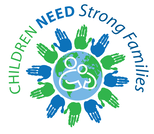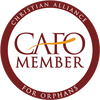History
HCW and the CRC transitioned from a long-term residential orphanage to a family-care system in 2016 - 2018. During this time, we created a social work team to ensure that children reintegrated back into families well. The team began to visit all families monthly to check on their status. This practice continued and began to engage the families in case management plans that would stabilize the family, and increase long term resiliency to overcome future crisis as the CRC grew to support over 400 impoverished families that were newly reintegrated or in such a fragile state they were at-risk of fracturing.
However, ongoing and unchanging financial support for a lifetime is not the answer to end the generational transfer of poverty when people are born into poverty. It diminishes their ability to develop self-management and the natural dignity and pride of accomplishment experienced when they see their role in moving toward independence. Supporting a family for years and years also limits the CRC’s capacity to help additional vulnerable families. There are many impoverished people in Sierra Leone, and the state of the economy is sending the country backwards and wiping out much of the progress made over the past two decades since the end of the civil war. There has never been a more important time to focus on family resiliency and economic strengthening.
While HCW recognizes the difficulty in creating programs in partnership that address local problems and adhere to international standards of best practices, we remain strategically anchored in the philosophy of local ownership of solutions. We know the more localized the solution, the more likely it will be sustainable. That is why we are working with the CRC to develop the Firmly Rooted Families curriculum for economic empowerment. This program continues the current Microfinance loan program that incorporates business and family financial management skills, micro-business loans and business mentorship, to better equip and empower families to obtain and manage the resources they need to care for their children.
The CRC is constantly working to find practical ways and culturally appropriate solutions that truly strengthen families and empower them to fend for themselves, without dependency on case management services or financial supports.
HCW and the CRC transitioned from a long-term residential orphanage to a family-care system in 2016 - 2018. During this time, we created a social work team to ensure that children reintegrated back into families well. The team began to visit all families monthly to check on their status. This practice continued and began to engage the families in case management plans that would stabilize the family, and increase long term resiliency to overcome future crisis as the CRC grew to support over 400 impoverished families that were newly reintegrated or in such a fragile state they were at-risk of fracturing.
However, ongoing and unchanging financial support for a lifetime is not the answer to end the generational transfer of poverty when people are born into poverty. It diminishes their ability to develop self-management and the natural dignity and pride of accomplishment experienced when they see their role in moving toward independence. Supporting a family for years and years also limits the CRC’s capacity to help additional vulnerable families. There are many impoverished people in Sierra Leone, and the state of the economy is sending the country backwards and wiping out much of the progress made over the past two decades since the end of the civil war. There has never been a more important time to focus on family resiliency and economic strengthening.
While HCW recognizes the difficulty in creating programs in partnership that address local problems and adhere to international standards of best practices, we remain strategically anchored in the philosophy of local ownership of solutions. We know the more localized the solution, the more likely it will be sustainable. That is why we are working with the CRC to develop the Firmly Rooted Families curriculum for economic empowerment. This program continues the current Microfinance loan program that incorporates business and family financial management skills, micro-business loans and business mentorship, to better equip and empower families to obtain and manage the resources they need to care for their children.
The CRC is constantly working to find practical ways and culturally appropriate solutions that truly strengthen families and empower them to fend for themselves, without dependency on case management services or financial supports.
WHAT IS FAMILY STRENGTHENING?
Family strengthening takes many forms, depending on the needs of the family. After child protection, and parent education for bonding and socio-emotional health are addressed, economic resilience is assessed and interventions applied to increase economic resilience against future crisis.
Example: Fatmata Mattia is a strong lady with a good heart. Her husband died in 2017. He was sick for three years with cancer of the throat. Fatmata has four children living with her at home. The 5 of them share a 4-room unfinished house at the outskirts of town with 5 other family members. The house was being built when her husband got sick and passed away. She lives in the house with her sister, who has her own 4 children as well. Fatmata and her children have two rooms, and the other two rooms belong to her sister and her children. They both have been working together to save money to finish the house.
In addition to being a microfinance beneficiary, Fatmata also received family mentoring, ongoing case management, training in attachment and family strengthening workshops offered by the CRC. “All these teachings from the CRC have been very helpful as I bring up these children as a single mother. That’s why I don’t skip them. I always look forward to attending those parenting workshops,” said Fatmata. “With the death of my husband and all those other family challenges, it was becoming more and more difficult every day. But I know that our God doesn’t sleep. He saw our suffering and He sent the CRC as a rescuer. We are grateful.” Fatmata values education and she wants the best for her children. The children are doing well in school and Fatmata makes sure that the children are regular and punctual in school. She knows when they children should be in school and when they should be off from school, and speaks with the teachers to keep informed of her children's progress.
From her business, she can now have food on the table when her children are from school. She has the funds to enroll her children into extra (after school) classes to strengthen their academic performance. She strongly believes that with her children getting educated, things will just continue to be better. She takes her business seriously. “Initially, I used to be worried when schools were about to open. I think about the number of uniforms and learning supplies to get. I worry about how and where to get the school fees and extra charges for the children. I will be stressed out. But now with my business my worries have ceased. I can now do a lot of these for my children.”
Sometimes after school the children pass by her shop to visit. They sometimes would help her fix buttons on uniforms, and dresses. They wait around to close the shop and come home to cook and have family time. “My children also help to advertise my business to their friends at school and community. Their word-of-mouth advertisement has been really helpful in getting me more customers.” Fatmata added. She is presently using the regular tailoring machines at her shop. She is working on getting an embroidery machine that will help her grow her business even more.
Family strengthening takes many forms, depending on the needs of the family. After child protection, and parent education for bonding and socio-emotional health are addressed, economic resilience is assessed and interventions applied to increase economic resilience against future crisis.
Example: Fatmata Mattia is a strong lady with a good heart. Her husband died in 2017. He was sick for three years with cancer of the throat. Fatmata has four children living with her at home. The 5 of them share a 4-room unfinished house at the outskirts of town with 5 other family members. The house was being built when her husband got sick and passed away. She lives in the house with her sister, who has her own 4 children as well. Fatmata and her children have two rooms, and the other two rooms belong to her sister and her children. They both have been working together to save money to finish the house.
In addition to being a microfinance beneficiary, Fatmata also received family mentoring, ongoing case management, training in attachment and family strengthening workshops offered by the CRC. “All these teachings from the CRC have been very helpful as I bring up these children as a single mother. That’s why I don’t skip them. I always look forward to attending those parenting workshops,” said Fatmata. “With the death of my husband and all those other family challenges, it was becoming more and more difficult every day. But I know that our God doesn’t sleep. He saw our suffering and He sent the CRC as a rescuer. We are grateful.” Fatmata values education and she wants the best for her children. The children are doing well in school and Fatmata makes sure that the children are regular and punctual in school. She knows when they children should be in school and when they should be off from school, and speaks with the teachers to keep informed of her children's progress.
From her business, she can now have food on the table when her children are from school. She has the funds to enroll her children into extra (after school) classes to strengthen their academic performance. She strongly believes that with her children getting educated, things will just continue to be better. She takes her business seriously. “Initially, I used to be worried when schools were about to open. I think about the number of uniforms and learning supplies to get. I worry about how and where to get the school fees and extra charges for the children. I will be stressed out. But now with my business my worries have ceased. I can now do a lot of these for my children.”
Sometimes after school the children pass by her shop to visit. They sometimes would help her fix buttons on uniforms, and dresses. They wait around to close the shop and come home to cook and have family time. “My children also help to advertise my business to their friends at school and community. Their word-of-mouth advertisement has been really helpful in getting me more customers.” Fatmata added. She is presently using the regular tailoring machines at her shop. She is working on getting an embroidery machine that will help her grow her business even more.
|
Our Partnership approach with CRC.
International development is shifting away from strategies that “make [indigenous people] dependent on foreigners for human and financial support (From Dependence to Dignity, Fikkert and Mask).” Helping Children Worldwide is committed to “[using] financial resources very strategically, placing a greater focus on training, equipping and leadership development… by providing consulting training and some financial resources offered in a nuanced, backstage, complementary and support role (Fikkert and Mask).” We needed a new development tool to reflect the CRC’s refined focus on the family as the unit of care (vs. a single child). We also want to help donors understand the depth and complexity of the social work the CRC is engaging families in and how it is designed to empower a family to become truly independent. We want our donors to understand that the funds they contribute have a far greater impact on a family’s growth than just access to education and medical care. |
What’s changed and why?
The CRC wants to do more, and do it better. Ongoing and unchanging support has a tendency to foster dependence. It diminishes the family's ability to develop self-management and know the dignity of moving toward independence. The CRC is now working to find ways to truly strengthen families. As the CRC's social work team has increased and deepened their own skills, they now seek to use these skills where they are most needed. They can work with individual families to identify goals, build toward those goals, and help families to graduate from CRC services. In fact, the CRC aims to be no longer needed, one family at a time, so that it can add new families to its caseload, building community resilience and networks that support as well. Supporting a family for years and years also limits the CRC’s capacity to help additional vulnerable families. The CRC is bringing in more street-connected children to reintegrate them into families and is expanding outreach in more villages. It is becoming more critical to focus heavily on the early stages of CRC care, when acute needs are greatest and families are most fragile. How does CRC do this? By working strategically, the CRC team is able to strike a better balance and link actual needs to the resources we can develop for them to use. They provide more intensive case management of fragile families, focus on child protection and family resiliency interventions with the Firmly Rooted Curriculum, and provide less intensive case management of families that can get by with fewer supports. To assist families through this process, each family in CRC care will have it's own case plan that will guide progess toward graduation. In the case plan, CRC staff will identify ways in which families might benefit from specific community group trainings. For instance, families struggling financially may be recommended to the CRC's microfinance program. Families that need extra support with parenting or trauma can attend the Attachment Theory program. Beginning in summer of 2021, the CRC will begin to offer an integrated combination of these two programs as outreach in the villages for families that otherwise would not be able to attend in Bo. Strengthening existing community networks through such group programs is a natural fit in Sierra Leone. Families' case plans will also guide CRC staff to work individually with families to target special needs, including financial or material support that will likely lessen as the family becomes more self-sufficient. |






